Big History Critique by Mitchell Diamond
Actually, a Critique of Ted Peters
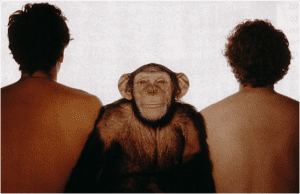
A critique of Ted Peters? Yes. Well, maybe.
I’ve been receiving many comments regarding the Patheos series on Big History. Some are critical. Most are complimentary. And complementary as well. None are travailous.
Mitchell Diamond provides a most interesting discussion while critiquing what I’ve reported and asserted. Let me share some of his interesting thoughts regarding the relationship between evolution and religion within Big History.
Mitchell Diamond’s Critique of Ted Peters
Mitchell Diamond is an independent researcher in the field of Evolutionary Psychology. He is author of the book, Darwin’s Apple: The Evolutionary Biology of Religion. Diamond tells us why religion arose in the first place and what forces cause it to persist in every culture. This means he is well poised to offer a critique of Ted Peters and to extend the discussion we’ve already begun.
Ted’s Question 1: Mitchell, what is your primary critique of Ted Peters’ treatment of BH?
Mitchell Diamond. I appreciate and applaud your desire for a scientific and evolutionary explanation of religion in your posts, “Science, Religion, and Deep Time” and “Science and Religion in Big History”. I understand that you’re presenting a viewpoint about Big History as a straw man in order to critique it. So forgive me if I misattribute if it’s you or BH making an assertion. That said, I suggest some contrasting scientific interpretations.
Ted’s Question 2. How do you account for morality and religion within an evolutionary framework? What are your contrasting scientific interpretations?
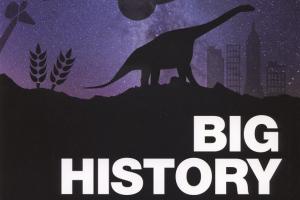
Mitchell Diamond. Morality evolved in our animal forebears, and we humans inherited it. (See Frans de Waal‘s books, Ted Talks, and Youtube videos.) The religious expression of morality is the cultural manifestation of our evolved moral predispositions. There are other cultural behaviors—mating rituals and pair bonding, parent/child bonding, dominance hierarchy, etc.—based on evolutionary biology that utilize our moral predispositions as well. Religion may also dictate how a culture engages in these behaviors, but the behavioral compunctions still precede religion.
Ted’s Question 3. If in-group cooperation is adaptive and competition between religious in-groups is maladaptive, how do we get to a vision of universal humanity and inclusive ethics?
Mitchell Diamond. Yes, morality is grounded in evolution. But when you say religion is immoral, you’re making leaps and assumptions. On the one hand, you’re assuming religion is adaptive because it, theoretically, fosters cooperation. Then you add, but alternatively, this: since religions non-cooperatively compete with each other, which incites violence, religion is therefore maladaptive.
However, you and/or BH have the postulates twisted around. If morality evolved prior to humans, it’s that very morality itself which gives rise to cooperation. I contend that morality and cooperation preceded religion by hundreds of thousands, even millions, of years. The religious expression of morality is just the cultural manifestation of our evolved moral predispositions.
Similarly, tribalism and in-group/out-group violence also preceded religion by a similar time frame. Longer actually, since chimpanzees also engage in tribal violence. (See Jane Goodall.) Religion is not the source or reason for violence. Tribalism is.
You (or BH?) said religion is good for reproductive fitness. Well, there you have it. You defined religion to be adaptive. It’s that simple.
“Evidence-based and evolution-based morality” does NOT mean universal cooperation for the human race. That is how you, me, and BH want things to be. But that is far from science. That’s injecting societal and political bias into the equation, but that has nothing to do with science and evolution.
Evolutionary biology explains the basis for religion. Given that religion is adaptive, then it’s advantageous and beneficial. This, I believe, is what you really want. But it’s not about cooperation/social cohesion or the existential mysteries (mythologies to provide answers), both of which also misuse evolutionary theory.
Ted’s Question 4. In my own treatment of Big History, I point out that big historians employ the conflict model – the conflict model in its scientific imperialism form — for treating the relationship between science and religion. That is, they plunder religion for its cultural achievements and take them as spoils for science. Do you agree or disagree with me?
Mitchell Diamond. You rightly challenge BH’s scientific imperialism. At least those who want to plunder religion and bend evolution to fit their worldview are stepping on science’s toes. I’ve seen this frequently where academics such as economists bastardize evolution to fit their economic theories.
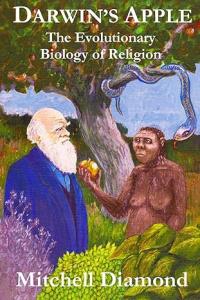
Your question makes explicit assumptions about the scientific imperialism model, and how it treats the relationship between science and religion. Many of those who explore the science versus religion issue pose them in conflict, in opposition. Such an argument is a zero-sum game. Either science is the method to establish truth or religion is.
I embrace the scientific method. But having said that, science does NOT replace or invalidate the function of religion. The goal of science should be to explain religion. And to explain why religion persists over tens of thousands of years. Science need not to usurp religion.
Religious devotees share some of the fault in the sometimes contentious struggle with the scientific community when they proclaim that their doctrines and mythologies herald scientific fact. Do religious believers still want to promote geocentrism like the Catholic Church did and persecute those who take a heliocentric view?
At the same time, questions of transcendence and other altered states of consciousness, life after death, the purpose of life, and the existence of a soul decidedly (though not exclusively) belong in the religious sphere. It is science’s job to investigate why humans employ religion for these purposes.
Ted’s Conclusions
To clarify, my previous posts attempted to explicate the use of evolution’s framework to explain the origin and persistence of religion. Many big historians rely for their notions of evolution on sociobiologists and evolutionary psychologists. The latter variants on evolutionary theory frequently espouse the view that religion was originally adaptive because it fosters in-group cooperation. But, they add, today religion is maladaptive because it’s competitive and leads fanatics to fly airplanes into skyscrapers. Therefore, say scientific imperialists, let’s rid the world of religion and take over its role in establishing a peaceful global society that is ecologically responsible.
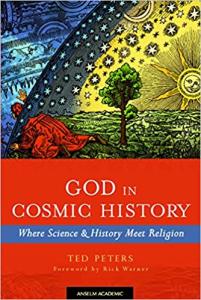
At this point Mitchel Diamond would propose that genuine scientists as well as big historians restrict their efforts to understanding and explaining religion. There is no warrant for fostering conflict between science and religion let alone the elimination of religion.
My own criticism of Sociobiology, Evolutionary Psychology, and Big hHstory is their immature and naïve grasp of what religion is. This leads to silly simplifications that – without historical investigation – ascribe to our religious ancestors superstition, in-group cooperation, out-group hostility, patriarchy, racism, and violence.
As you will see in my posts – as I’ve already contended in my book, God in Cosmic History – such accepted generalizations blind historical scholars to the Axial Threshold, to the profound transcendent insights of the axial seers. The axial age introduced a new possibility for human consciousness. This leap in consciousness cannot be measured by the primitive devices of Sociobiology, Evolutionary Psychology, or Big History.
Patheos SR 5060 BH 10 Critique of Ted Peters by Mitechell Diamond
▓
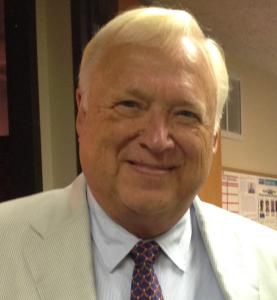
Ted Peters pursues Public Theology at the intersection of science, religion, ethics, and public policy. Peters is an emeritus professor at the Graduate Theological Union, where he co-edits the journal, Theology and Science, on behalf of the Center for Theology and the Natural Sciences, in Berkeley, California, USA. His book, God in Cosmic History, traces the rise of the Axial religions 2500 years ago. He tackled the implications of genetic innovation for the future of humanity in Playing God? Genetic Determinism and Human Freedom? (Routledge, 2nd ed., 2002) as well as For the Love of Children: Genetic Technology and the Future of the Family (Westminster/John Knox 1997). His essays are collected in Science, Theology, and Ethics (Ashgate 2003) The Voice of Public Theology (ATF 2023).
Recently Ted edited AI and IA: Utopia or Extinction? (ATF 2019). Along with Arvin Gouw and Brian Patrick Green, he co-edited the new book, Religious Transhumanism and Its Critics hot off the press (Roman and Littlefield/Lexington, 2022). His fictional spy thriller, Cyrus Twelve, follows the twists and turns of a transhumanist plot.
Visit Ted Peters’ website, TedsTimelyTake.com.
▓














